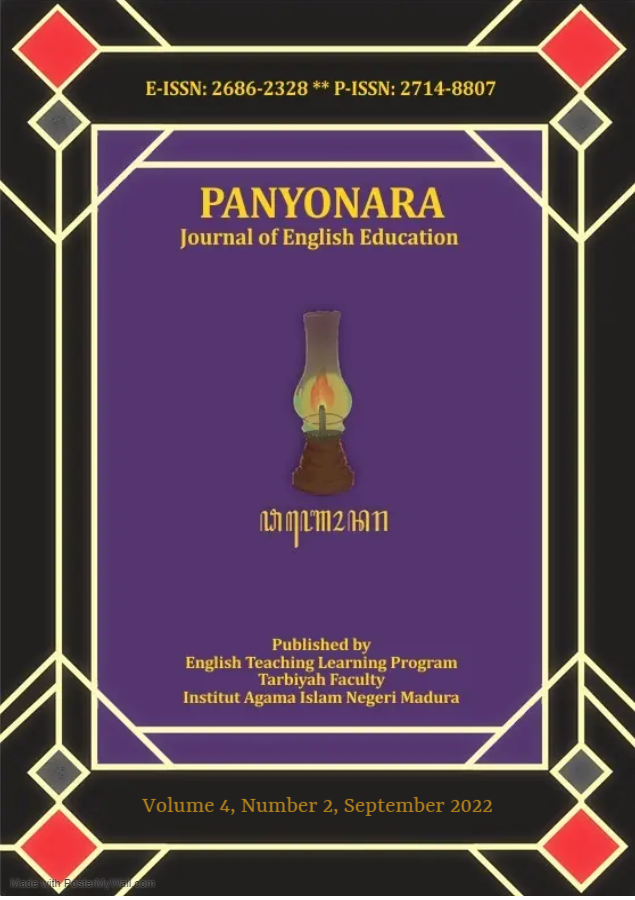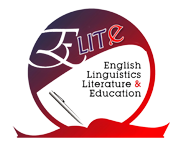Problems Behind Fostering Autonomous Learning During Learner-Centered Instruction Paradigm in EFL Class
 Abstract views: 398
,
Abstract views: 398
,
 PDF downloads: 251
PDF downloads: 251
Abstract
Promoting students to be independent learners is challenging for English teachers. Students accustomed to learning based on the teacher's instruction and usually waiting for any materials will find learning through autonomous learning difficult. Moreover, English teachers would also obligate to lead the students to foster their learning independently. This article aims to analyze any difficulties found in EFL classes during fostering students' autonomous learning. The research was conducted under a qualitative approach by using a phenomenology design. The research was conducted at MAN Kota Solok and further developed by involving 4 English teachers and 160 students in four classes. The research found that the problems in fostering autonomous learning in EFL classes lie in 4 reasons: time availability, teachers' creativity, and competence, materials resources, and class size. The finding strengthens that all elements in the educational system should be ready to run autonomous learning, which involves the readiness of teachers, students, institutions, and the government to support the implementation of autonomous learning in EFL class.
Downloads
References
Ali, S. A. (2013). Arab World English Journal. Arab World English Journal, 4(1), 42–47.
Alonazi, S. M. (2017). The Role of Teachers in Promoting Learner Autonomy in Secondary Schools in Saudi Arabia. English Language Teaching, 10(7), 183. https://doi.org/10.5539/elt.v10n7p183
Aoumeur, H. (2017). The Impact of Class Size on Teaching and Learning English as a Foreign Language: The Case of the Department of English at Abdelhamid Ibn Badis University. Arab World English Journal, 8(2), 349–361. https://doi.org/10.24093/awej/vol8no2.25
Ariebowo, T. (2021). Autonomous Learning during COVID-19 Pandemic: Students’ Objectives and Preferences. Journal of Foreign Language Teaching and Learning, 6(1). https://doi.org/10.18196/ftl.v6i1.10079
Daflizar, & Petraki, E. (2022). Readiness for Autonomous English Language Learning: The Case of Indonesian Undergraduate Students. Indonesian Journal of Applied Linguistics, 11(3), 515–526. https://doi.org/10.17509/ijal.v11i3.34259
Dastpak, M., Fatemeh, B., & Taghinezhad, - Ali. (2017). International Journal of Languages ’ Education and Teaching. International Journal of Languages’ Education and Teaching, 5(June), 230–238. http://files.eric.ed.gov/fulltext/ED574953.pdf
Díaz-Noguera, M. D., Hervás-Gómez, C., De la Calle-Cabrera, A. M., & López-Meneses, E. (2022). Autonomy, Motivation, and Digital Pedagogy Are Key Factors in the Perceptions of Spanish Higher-Education Students toward Online Learning during the COVID-19 Pandemic. International Journal of Environmental Research and Public Health, 19(2). https://doi.org/10.3390/ijerph19020654
Jamila, M., & Zubairi, A. M. (2022). A Systematic Review of Autonomous Learning in ESL/EFL in Bangladesh: A Road to Discovery Era (2009-2022). English Language Teaching, 15(4), 47. https://doi.org/10.5539/elt.v15n4p47
Kardena, A. (2013). Change of Curriculum and Its Implication on Teacher’. Proceedings of ISELT FBS Universitas Negeri Padang. 46–51.
Kardena, A. (2017). Teacher’s Role as an Information Gatherer: A Hidden Part in Developing Learning in Context.
KARDENA, A. (2017). Teacher’s Role as An Information Gatherer: A Hidden Part in Developing Learning in Context. 110(Iselt), 64–68. https://doi.org/10.2991/iselt-17.2017.12
Khan, R. M. I., Ali, A., & Alourani, A. (2022). Investigating Learners’ Experience of Autonomous Learning in E-learning Context. International Journal of Emerging Technologies in Learning, 17(8), 4–17. https://doi.org/10.3991/ijet.v17i08.29885
Lomba-Portela, L., Domínguez-Lloria, S., & Pino-Juste, M. R. (2022). Resistances to Educational Change: Teachers’ Perceptions. Education Sciences, 12(5), 359. https://doi.org/10.3390/educsci12050359
Lubis, A. H. (2020). EFL Teacher’s Roles to Foster Learner Autonomy: Ideals and Realities in Flipped Learning. The 11th AISOFOLL: Facing Industrial Revolution 4.0 through Language Education, April, 89–103. https://www.researchgate.net/publication/350663361_EFL_teacher’s_roles_to_foster_learner_autonomy_Ideals_and_realities_in_flipped_learning
Masouleh, N. S., & Jooneghani, R. B. (2012). Autonomous Learning: A Teacher-Less Learning! Procedia - Social and Behavioral Sciences, 55(October 2012), 835–842. https://doi.org/10.1016/j.sbspro.2012.09.570
Nacional, U., & Educación, D. (2014). Autonomous Learning Resources For Efl : What Learners Think Jorge Arús Hita Universidad Complutense de Madrid Pilar Rodríguez Arancón. 2018(January 2015), 1–15.
Patton, Q. (1990). Qualitative Evaluation and Research Methods. Sage Publication ltd.
Peyton, J., Moore, S., & Young, S. (2010). Evidence-Based, Student-Centered Instructional Practices. Center for Applied Linguistics, April. http://scholar.google.com/scholar?hl=en&btnG=Search&q=intitle:Evidence-Based+,+Student-Centered+Instructional+Practices#1
Syafryadin, Suherdi, D., Nadya, N. L., Harahap, A., & Astrid, A. (2022). Teacher Readiness and Challenges in Creating Learner Autonomy in ICT-Based English Learning Activities. Indonesian Journal of Applied Linguistics, 11(3), 708–717. https://doi.org/10.17509/ijal.v11i3.34667
Tiong Nii, A., & Yunus, M. M. (2022). Teachers’ Factors in Autonomous Learning During Language Learning: A Systematic Literature Review. International Journal of Academic Research in Business and Social Sciences, 12(5), 1408–1427. https://doi.org/10.6007/ijarbss/v12-i5/13209
Uswatun, H. (2013). Autonomous Learning As Language Learning Strategy Based on Students Preferenced Learning Style. IDEAS: Journal on English Language Teaching and Learning, Linguistics and Literature, 1(2), 1–22. http://ejournal.iainpalopo.ac.id/index.php/ideas/article/view/163
Wahyuni, S., Mujiyanto, J., Rukmini, D., & Fitriati, S. W. (2019). Examining Teachers’ Innovation in EFL Classrooms in Promoting Students’ Autonomous Learning. January. https://doi.org/10.2991/eltlt-18.2019.64
The journal uses an Open Access policy under a Creative Commons Attribution-NonCommercial 4.0 International License. Authors who publish with this journal agree to the following terms:
- Authors retain copyright and grant the journal right of first publication with the work simultaneously licensed under a Creative Commons Attribution License that allows others to share the work with an acknowledgment of the work's authorship and initial publication in this journal.
- Authors are able to enter into separate, additional contractual arrangements for the non-exclusive distribution of the journal's published version of the work (e.g., post it to an institutional repository or publish it in a book), with an acknowledgment of its initial publication in this journal.
- Authors are permitted and encouraged to post their work online (e.g., in institutional repositories or on their website) prior to and during the submission process, as it can lead to productive exchanges, as well as earlier and greater citation of published work.
















